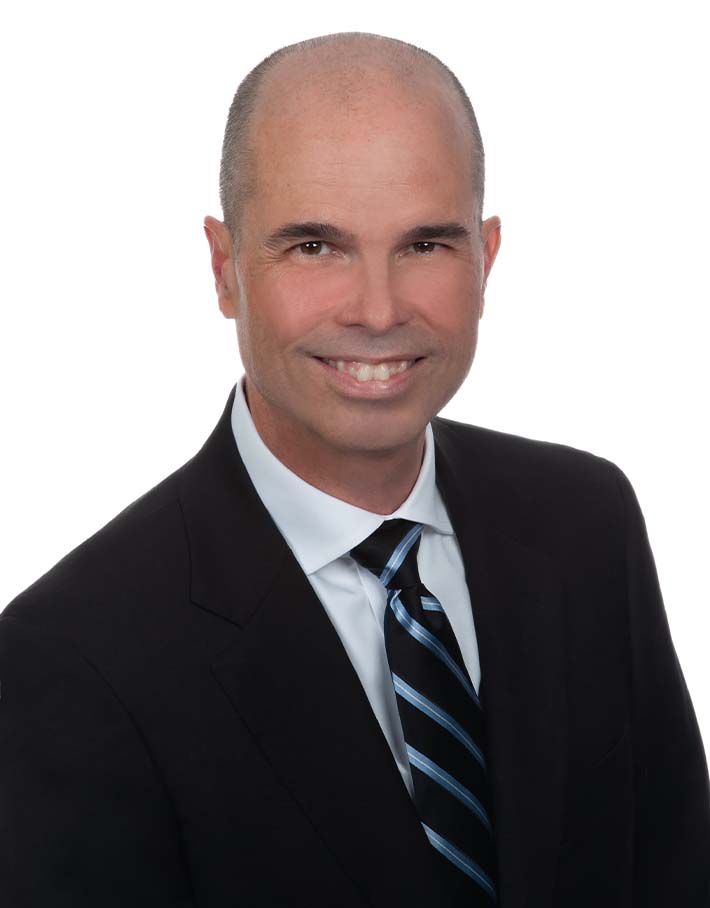Cryptocurrencies & Digital Assets – The Wheels Are Turning
By Jeff Gearhart and Buddy Doyle
Subscribe to our original industry insights
Welcome to our new series, Cryptocurrencies and Digital Assets: The Wheels are Turning – Are You Up-to-Date? where we will discuss regulations, the impacts on our markets and the securities industry, why cryptocurrencies are relevant and where they are going, as well as the implications of digital assets in the retail, securities and institutional space.
Hosted by Jeff Gearhart, today’s episode features Ed Wegener, a former FINRA regulator, discussing what is happening on the regulatory front and how it is impacting the markets.
Transcript
Transcript provided by Temi transcript services
Oyster: Welcome to the Oyster Stew podcast, where we discuss what’s happening in the industry. Based on what we see as we work with regulators and clients. Oyster consultants are industry practitioners. We aren’t career consultants. We’ve done your job and we know the issues you face. You can learn more about Oyster Consulting and the value we can add to your firm by going to our website oysterllc.com.
Jeff Gearhart: Hi, this is Jeff Gearhart. Welcome to today’s podcast the first in a series titled Cryptocurrencies and Assets – The Wheels Are in Motion. Are You Up to Date? In this series we’re going to talk about regulations, the impacts on our markets, the securities industry. We’re also going to talk about currencies. Why are they relevant? Where are they going as well as digital assets and the implications, not just in the retail space, but in the security space, in the institutional space as well with me today is Ed Wegener here to talk about the regulatory aspect, which will be our focus today. Why, why should you care? It’s very relevant and it’s in the news. It’s the top of the financial news every day. And there’s a lot of volatility in currencies. So there’s a lot of uncertainty, but you have key regulators like the fed and the central banks looking to create their own central bank, digital currencies. So it’s going to happen and there’s too many benefits globally. And then it just extends naturally into the securities markets, the financial markets that, why don’t we just start from there? Why is regulation so important in these markets? What is happening so quickly that people need to pay attention?
Ed Wegener: Well, thanks, Jeff. It’s tough. Cause right now, you know, there there’s so much going on and it’s really hard to understand where this is all leading to, but it’s clear that the digital asset market is real, whether it becomes Bitcoin or stable coin or defy or NFTs are something that we’ve not never heard of yet the use cases might evolve. The use cases for blockchain might evolve, but the technology is here to stay and it’s going to be disruptive to how things are done currently. So it’s important to keep up with how things are evolving and the regulation is definitely evolving as well. Regulators right now are being very cautious in balancing both the desire to embrace new technologies and innovation while at the same time ensuring that investors and the financial system are protected. So, you know, as we talked about before, it’s, it’s sort of this conflict between, you know, wanting to introduce new disruptive technologies and, uh, products and business, but at the same time, you know, making sure that the system is protected because the worst thing that can happen for this market is for there to be some giant scandal because that’s going to cause people to get frightened and, uh, regulators to get concerned and really put a halt on, uh, the development of this innovation.
So it’s really important that as this continues to evolve, that we, the regulators take up a measured and thoughtful approach and that’s what’s happening right now. It’s a bit frustrating because it takes a long time, uh, for, for guidance to come out and for these things to be developed. But, um, they are, and guidance is coming out. I’ll be at slowly. Um, but it’s clear that regulators are starting to develop regulations to help support this market and whether it’s, uh, securities regulation or banking regulations or AML, those types of regulations add legitimacy to the market. And I think that’s what the market needs. So while it’s taking a long time, I think it’s important and, um, official.
Jeff Gearhart: So really, it’s a blending of the traditional, as we know it, with the innovative and where everybody’s trying to make the market, it’s essentially trying to reconcile the two.
Ed Wegener: Yeah. And absolutely. And that’s one of the challenges that I’ve seen in working with people on this because the people that I’ve been involved in taking this disruptive technology and applying it to the financial services industry are generally technology, people that are used to being innovative, trying things, breaking things, and then trying to fix them. And, you know, that’s from the regulatory standpoint, regulators don’t work that way, right? They want to make sure that things don’t get broken. And so I think that sort of dichotomy between, um, innovation technology moving forward while also having this governor of regulation while important can be frustrating at times,
Jeff Gearhart: It’s almost as if the regulation is making this technology legit legitimate, it can protect the participants. It can define the rules, it can provide a sense of security so that when you participate, you’re going to have your assets at the end of the day,
Ed Wegener: Right? I mean, if you take the AML requirements for as an example, you know, one of the big, um, concerns because of the ease of transfer and the anonymity associated with some of these assets, the concern about this being used for illicit activities and, and money laundering, you know, to the extent that the regulators put in place a framework so that you can comply with the money laundering regulations and still engage in this marketplace, the more legitimate the marketplace will be. And so I think people get frustrated with regulations. I think there’s, you know, anytime there’s a new regulation, people get concerned about the requirements and the things that you need to be prepared for. The fact that these regulations add that legitimate. See, I think is it’s important to the marketplace. I
Jeff Gearhart: Do think a lot of participants are starting to accept that and actually encourage it, all the good guys in the blockchain development. And then of course the bad guys, the money launderers and those folks, everybody wants to squeeze them out because he really can’t afford a major fail or a major disaster. Absolutely. So when it comes to digital assets and maybe we’re blending terms a little bit between assets and currencies, when it comes to a digital asset, what are some of the key considerations for brokerage firms?
Ed Wegener: I think the first one is the one that you just mentioned blending, you know, the difference between securities and currencies, right? And that’s probably the starting point, especially when we talk about the capital markets is when is a digital asset, a security. This really kind of came to a head when the sec issued its 21 a report regarding Dow tokens, uh, several years ago. And the major consideration was whether a digital asset is a security or not. And it’s a critical question because if the asset is a security, then a lot of things fall from that. Any offering that is done would need to be registered with the sec or would need to qualify for an exemption, any venue which the assets trade on would need to either be registered as an exchange or as a broker dealer ATS, and any individuals who, whose activity would be considered acting as a broker or a dealer would need to register with the sec and be a member of an SRO.
So understanding whether an asset is a security or not as important. And because the sec has identified certain digital assets as securities, it’s important to do that analysis. Certain cryptocurrencies, such as Bitcoin and Ethereum have been identified by the CFTC as commodities and not securities. However, like we said, many such assets have been identified as securities by the sec. And the sec has brought cases against operators for engaging in unregistered securities distribution. So it’s important and are a prime example of that is, uh, the recent case that they brought against ripple. And then there were the downstream effects. Um, you know, not just was it ripple, an unregistered securities offering, but the secondary market trading of ripple and whether, um, the exchanges on which they traded were, it should have been registered securities exchanges. So those are important things to, to consider
Jeff Gearhart: Bitcoin Ethereum, um, are interesting. They’re not securities that are commodity. One could argue whether they’re a currency or not, but the volatility is too much really to be a stable currency, at least. Anyhow, what about a stable coin? Something that, that, that might be benchmarked off of say treasury securities, for example, could that fall into the security world? Well, it depends.
Ed Wegener: And, and there’s a lot of considerations, a lot of things that you have to consider when doing that assessment, the important first step is that when it, and dealing in any of these assets that you do that analysis to determine whether it’s a security or not. And the sec issued a, a framework for assessing digital assets and whether there are security, they provided that guidance when they issued a no action letter to an entity called turnkey jet that had, um, asked the sec to opine on whether certain tokens that they had issued were securities. And the sec had come out and said, no, based on what we know about those tokens that are not securities. And with that no-action letter, they issued guidance to say, here are the things that you need to consider when doing that assessment and the framework that they outlined really follows the elements that were laid out by the Supreme court, in the WJ Howey case, they call it the Holland test.
Ed Wegener: And it applies the elements specifically to the unique features of digital assets. So factors such as, you know, like being an investment of money in a common enterprise with the expectation of profits solely on, based on the efforts of others, those types of things are sort of the elements that you need to consider when determining whether something’s a security, but how do you do that when you’re talking about digital assets? And so that framework that they issued with the turnkey jets, no action letter, really kind of as a first guidance that they provided to say, here’s the things that you need to be thinking about when doing this analysis for digital assets. But again, the important thing is that if you’re going to be engaging in any activity related to digital assets, that you do that assessment and that you don’t just assume that it’s not a secure,
Jeff Gearhart: That would be relevant, not just for the people participating in the transaction, the buyer and the seller, but for a broker dealer that’s involved in this, but also for the advisor, a lot of wealth managers are encouraged, forced, or have pressure from their, their client base to be in this space. So it’s relevant to all participants. Absolutely. So what about custody?
Ed Wegener: It’s been a big challenge for broker dealers and the sec and FINRA have been struggling with custody and the rules associated with custody when it comes to, uh, digital assets, just based on, you know, the unique features of the digital assets and some of the challenges that they have there. The sec and FINRA issued joint guidance a few years ago, with respect to custody, identifying some of the concerns that they have with broker dealers, providing custody for digital assets, they outlined concerns and challenges associated with things like the customer protection rule, uh, the application of books and records, requirements, and civic considerations, all things that are very challenging apply when you’re talking about digital assets. Um, so they outlined those concerns in the guidance, but they also identified certain non-custodial activities that broker dealers are engaged in that don’t present the same level of concern as long as existing rules are followed.
And some of those activities include things like acting as a placement agent in a private offering of digital tokens, where the issuer and the investor settle the transaction between themselves and not through the broker dealer, facilitating over the counter or secondary market transactions in digital asset securities, where the broker dealer doesn’t take custody or exercise control over the assets. And also secondary market transactions where a broker dealer introduces a buyer and a seller together, or vice versa through a trading platform, such as an ATS. And the trade is settled directly between the buyer and the seller and the broker dealer isn’t involved in, in the settlement of the transaction. Those are things that the sec and FINRA said that, you know, you can do it, doesn’t raise these custody concerns. You still have to follow the traditional rules and regulations, but they don’t see as much of a concern with those types of activities as they do with custody.
In December 2020, the SEC issued an interesting request for comment. They issued this request asking for input with respect to custody of digital assets by special purpose broker dealers. But along with that request for comment, they also issued a statement that says in part that for a period of five years, a special purpose broker dealer, which they define in the guidance could provide custody without being subject to an enforcement action. So long as it meets the terms that are outlined in that statement. It’s important that to the extent you’re considering providing custody as a broker dealer, that you read that statement, because the terms in the statement are very specific and it’s important that you consider those before going down that path. But that’s about as far as I’ve seen them go in terms of custody, I think a lot will come once they get more information and responses to that request for input. But it’s another area that that’s really evolving.
Jeff Gearhart: It’s becoming clear. We’ve talked a little bit about currencies. We’ve talked a little bit about assets and we’re talking about currencies and assets that trade on the blockchain. So then the, the, the new world, if you will, broker dealers have to pay attention, it’s coming into this space, whether you want it to, or not, it’s the securities. It could eventually be the exchange of payments and everything of that nature.
Ed Wegener: Absolutely. I mean, it’s, it’s not only disrupting some of the direct areas with respect to broker dealer, a capital market business, but also, you know, a lot of indirect areas, like you said, in the payment system, there’s a number of use cases for the blockchain and they haven’t really all been fleshed out and they’ll be fleshed out over time. But that technology is the underpinning of what will probably be a lot of changes for how we do business going forward. And you’re right. It’s important for people to keep an eye open, to make sure that they understand how this is evolving.
Jeff Gearhart: So it’s coming, it’s kind of like the internet 20 years ago. Nobody thought Netflix would be what it is today. Right.
Ed Wegener: Um, and I had heard that analogy and I think that’s completely apt because when, if you think back when the internet was first started and was, first of all, having people really didn’t know what was going to evolve from the development of the internet. And you’ll see where we’re at now, where there’s all these businesses that are based on the internet and the underlying technology. And I think that’s going to be the same for the blockchain. And it’s just right now, it’s hard to see where it’s going.
Jeff Gearhart: That makes it fun and scary and exciting and all that. So where confirms go for guidance
Ed Wegener: Right now, the SEC and FINRA’s office of Financial Innovation are working really closely with the industry to help foster this innovation, but at the same time, trying to ensure that critical safeguards are in place and both the sec and FINRA through these groups have been very open to engaging in dialogues with firms. So I would encourage firms that are, have questions in this area, or that are planning to engage in this area to reach out to fin hub and the opposite financial innovation, if they have specific questions. Um, I’ve had a lot of discussions with them on behalf of clients and they’ve been extremely helpful. So that’s, from a security standpoint, I would definitely reach out to them. They have websites and they publish their guidance on those websites. So I would, uh, keep an eye on those as well.
Jeff Gearhart: Are there some key considerations for broker dealers at least now?
Ed Wegener: Yeah. The one thing is I would definitely make sure that you understand what type of activity, if any, your reps are engaging in. One thing to consider is whether any of that activity would be considered an outside business activity. Um, and importantly, you know, just based on the discussion that we had about whether these things are securities or not, if a digital asset is deemed to be a security, it would be considered a private securities transaction, and that would require specific requirements for the broker dealer. So it’s very difficult to do that type of analysis. So I would err on the side of trying to understand all of your reps, digital asset business, so that you can help them in navigating that another area to consider is if you’re thinking about getting involved in digital assets at all, is to determine whether the activity would considered a material change require a continuing membership application with FINRA.
You can work with your regulatory coordinator and they can help you in that assessment, but that’s something to make sure that you assess before you engage in that type of activity. And another area that’s important is AML. We talked about it a little bit before, but it’s always a high priority when it comes to digital assets because of the anonymity and the ease of transfer FATF has issued guidance as well as FinCEN with respect to digital assets and the AML requirements. So it’s important to keep up with the guidance that they’re providing and then the states have issued varied and conflicting licensing requirements. So it’s important to really understand specific state requirements, but, uh, there’s definitely more to come. So it’s important to just kind of keep on top of it as it evolves.
Jeff Gearhart: Well, we are running out of time. Thank you, Ed, for sharing this regulatory update and your perspective, very helpful as always really appreciated. This is the first in our series of podcasts titled Cryptocurrencies and Assets – The Wheels Are in Motion. Are You Up to Date? where we will gather subject matter experts to discuss such topics as cryptocurrency, stable coins and central bank digital currencies. We also plan to discuss digital assets and securities what they are, how they trade and the evolution of the markets, and perhaps most exciting actual use cases where we will explore implementations of blockchain and digital ledger technologies in the banking and securities markets, an exciting time for our industry and a lot to come. Thanks for listening.




